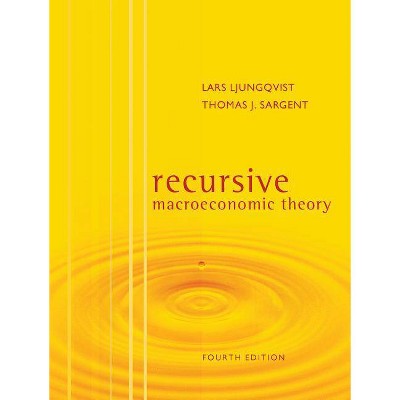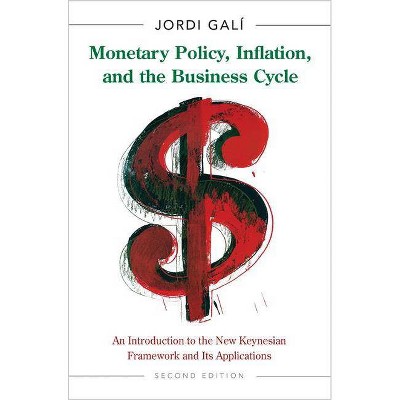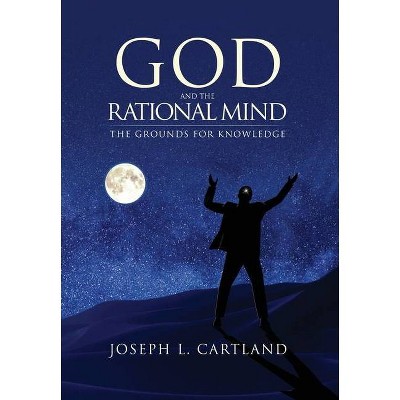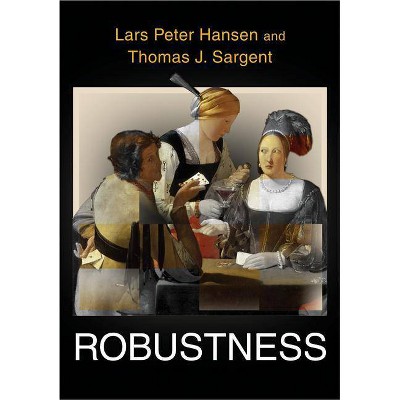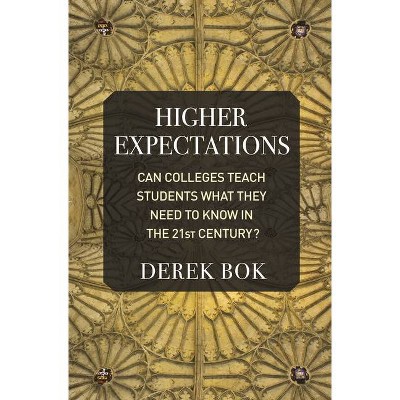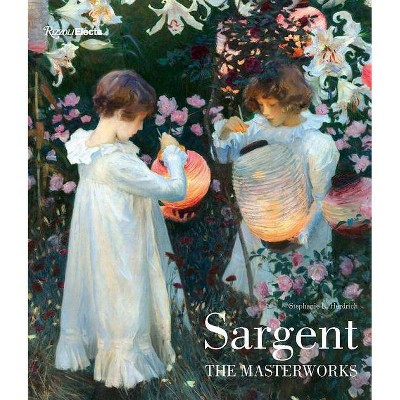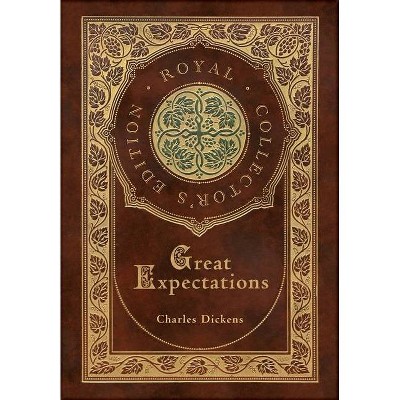Rational Expectations and Inflation - 3rd Edition by Thomas J Sargent (Hardcover)
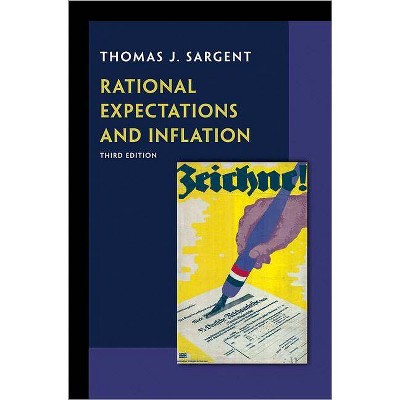
Similar Products
Products of same category from the store
AllProduct info
<p/><br></br><p><b> About the Book </b></p></br></br>This collection of essays uses the lens of rational expectations theory to examine how governments anticipate and plan for inflation, and provides insight into the pioneering research for which Thomas Sargent was awarded the 2011 Nobel Prize in economics. Rational expectations theory is based on the simple premise that people will use all the information available to them in making economic decisions, yet applying the theory to macroeconomics and econometrics is technically demanding. Here, Sargent engages with practical problems in economics in a less formal, noneconometric way, demonstrat<p/><br></br><p><b> Book Synopsis </b></p></br></br><p><b>A fully expanded edition of the Nobel Prize-winning economist's classic book</b> <p/>This collection of essays uses the lens of rational expectations theory to examine how governments anticipate and plan for inflation, and provides insight into the pioneering research for which Thomas Sargent was awarded the 2011 Nobel Prize in economics. Rational expectations theory is based on the simple premise that people will use all the information available to them in making economic decisions, yet applying the theory to macroeconomics and econometrics is technically demanding. Here, Sargent engages with practical problems in economics in a less formal, noneconometric way, demonstrating how rational expectations can satisfactorily interpret a range of historical and contemporary events. He focuses on periods of actual or threatened depreciation in the value of a nation's currency. Drawing on historical attempts to counter inflation, from the French Revolution and the aftermath of World War I to the economic policies of Margaret Thatcher and Ronald Reagan, Sargent finds that there is no purely monetary cure for inflation; rather, monetary and fiscal policies must be coordinated. <p/>This fully expanded edition of <i>Rational Expectations and Inflation</i> includes Sargent's 2011 Nobel lecture, United States Then, Europe Now. It also features new articles on the macroeconomics of the French Revolution and government budget deficits.</p><p/><br></br><p><b> From the Back Cover </b></p></br></br><p>"Sargent's work on inflation remains central to cutting-edge research in economics as well as to current and momentous policy decisions. Are the United States and Europe headed toward inflation with our large and intractable deficits? Will the European currency union survive? The breakthrough theoretical insights and brilliant case studies in this book are still the foundations that anyone thinking about these questions needs to read, and then to read again."<b>--John H. Cochrane, author of <i>Asset Pricing</i></b></p><p>"<i>Rational Expectations and Inflation</i> is a collection of classic articles on the subject, several of which were explicitly cited in the scientific background to Sargent's Nobel Prize. The contribution of this book is great."<b>--Marco Bassetto, Federal Reserve Bank of Chicago</b></p><p/><br></br><p><b> Review Quotes </b></p></br></br><br>In <i>Rational Expectations and Inflation</i>, Sargent provides a consistent way to think about the relationship between a government and its central bank. . . . [I]t is the best exposition of what monetary policy is all about, at this mostly nontechnical level, of which I know. . . . <i>Rational Expectations and Inflatio</i>n on the whole remains fresh, stimulating and informative.<b>---Edward J. Green, <i>The Region</i></b><br><br>Sargent's interpretation of the hyperinflations is not new. What is new and important is his explicit use of the terminology and constructs of the theory of rational expectations. That terminology and those constructs clearly offer an illuminating way to analyze these complex events. . . . Whether you agree or disagree with Sargent's interpretation of specific historical episodes, you will get a better understanding of both the theory of rational expectations and the interrelations of monetary and fiscal policy from this imaginative, analytically subtle, and lucidly written book.<b>---Milton Friedman, <i>Journal of Political Economy</i></b><br><br>Thomas J. Sargent, Winner of the 2011 Nobel Prize in Economics<br><p/><br></br><p><b> About the Author </b></p></br></br><b>Thomas J. Sargent</b> is professor of economics at New York University. His books include <i>Robustness</i> and <i>The Big Problem of Small Change</i> (both Princeton). He was awarded the 2011 Nobel Prize in economics.
Price History
Price Archive shows prices from various stores, lets you see history and find the cheapest. There is no actual sale on the website. For all support, inquiry and suggestion messagescommunication@pricearchive.us
